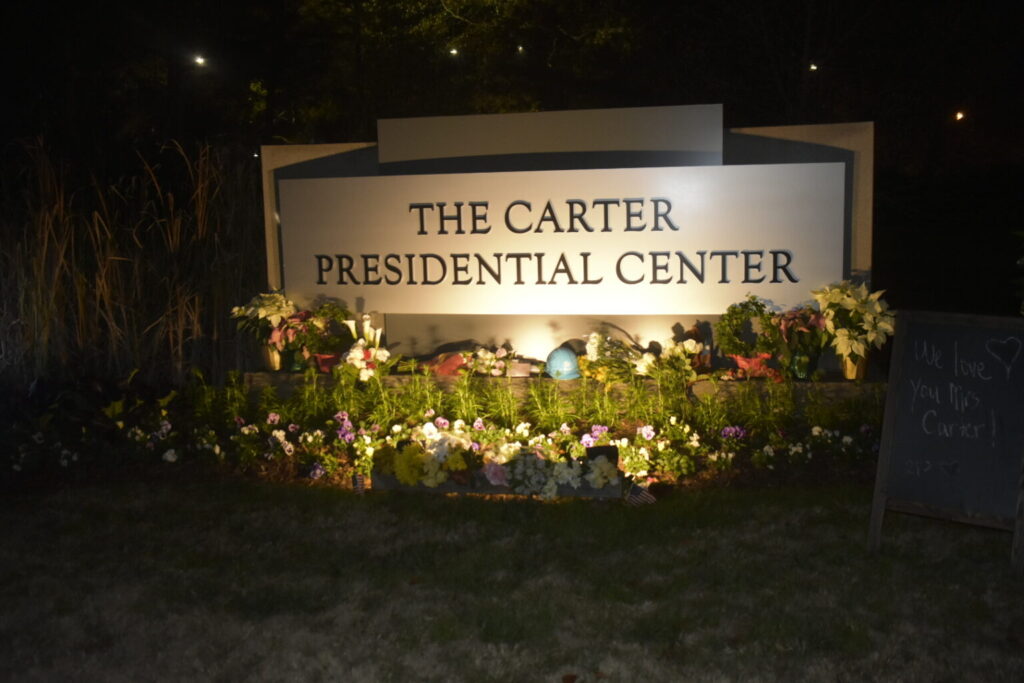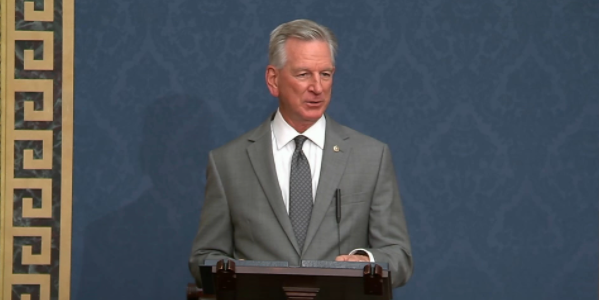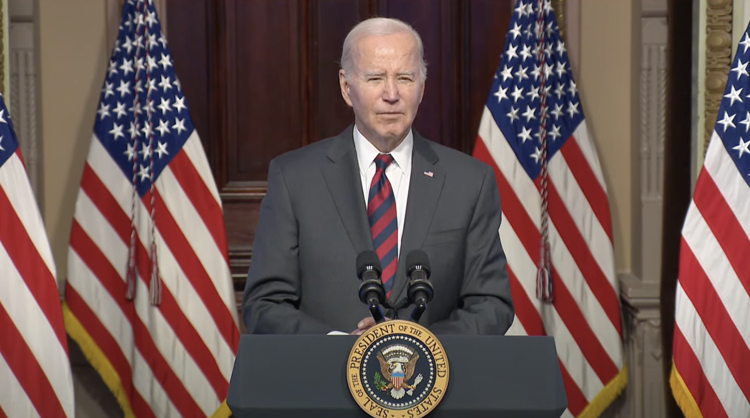Vivek Ramaswamy to hold event in Alabama prior to debate

The top Republican presidential candidates are coming to Alabama on December 6 for the third Republican Presidential Debate. At least one of the presidential candidates will be arriving early to Alabama. Vivek Ramaswamy will be in Hoover on December 5 for a fundraising reception with the Jefferson County Republican Party. The event will be on Tuesday, December 5, from 5:30 to 7:30 PM at the Ross Bridge Hotel in Hoover at 4000 Grand Avenue. Individual tickets start at $100 each. In addition to Ramaswamy, Jefferson County Republican Party candidates are expected to be in attendance. The event will be held the evening before the fourth Republican Presidential Debate. Ramaswamy is participating in the Republican presidential debate in Tuscaloosa along with former Ambassador to the United Nations Nikki Haley, Florida Governor Ron DeSantis, and former New Jersey Governor Chris Christie. Republican frontrunner former President Donald Trump has not participated in any of the debates and is not expected to participate in the Alabama presidential debate either. If elected, Ramaswamy, who is of Indian descent, would be the first Hindu President of the United States. Ramaswamy is a successful businessman who is running as an outsider. He is married and has two children. He was born and raised in Cincinnati, Ohio. Growing up he was a nationally ranked tennis player and the valedictorian of his high school, St. Xavier. He went on to graduate summa cum laude in Biology from Harvard and has a law degree from Yale Law School. He has worked at a hedge fund. He started a biotech company, Roivant Sciences, where he oversaw the development of five drugs that went on to become FDA-approved. He is an author and has written extensively attacking the woke movement. His foreign policy views, especially his criticism of the U.S. support for Ukraine in their war against Russia, have been controversial. The Alabama Presidential primary is on March 5 – Super Tuesday. The Republican nominee will face incumbent President Joe Biden in the general election on November 5. To connect with the author of this story or to comment, email brandonmreporter@gmail.com.
Alabama Medical Cannabis Commission ratifies agreement

On Monday, the Alabama Medical Cannabis Commission (AMCC) voted to ratify an agreement with plaintiffs’ attorneys to allow the AMCC to move forward with presentations from cannabis applicants as part of its new timeline to make license awards in December. Attorney Mark Wilkerson is representing the AMCC. Wilkerson said that after a day of court-ordered mediation, he and AMCC staff have reached a settlement with most of the plaintiffs to allow the AMCC to proceed with new license awards if the commission votes to ratify the agreement. Two major sticking points were addressed in the recent closed-door negotiations between all the attorneys. The first issue was the ten-megabyte limit on marijuana application size. The AMCC provided flexibility to help applicants work around the limit – but that information was not distributed, so some applicants submitted applications that were far smaller than what they would have preferred – or did not apply at all because they could not figure out how to downsize their application to ten megabytes without leaving out vital information. In the agreement, there is no limit on the application sizes, and applicants were allowed to submit material initially left out of their applications. The second sticking point was the scoring. The independent application evaluators hired by the University of South Alabama graded the applications, assigning them a numerical score and ranking them from first to worst based on that scoring. In the settlement, commissioners cannot consider any South Alabama scores when they make their awards. Any of the lawsuits over the scoring or the file size limit were dismissed with prejudice by the court in exchange for agreeing to those two final points. The Commission voted unanimously to ratify the agreement, meaning that the restraining order was lifted by the court. The Commission then began hearing presentations from applicants seeking cultivator licenses and the applicants seeking the marijuana testing laboratory license. Chey Garrigan is the founder and President of the Alabama Cannabis Industry Association (ACIA). “We are happy that the Commission ratified the settlement,” said Garrigan. “This was the only way that we could move forward with issuing the licenses.” “We were pleased with all of the presentations and look forward to working with all of the licensees in the future,” Garrigan added. The Commission willreturnk Tuesday to hear presentations from the secure transporter and processor applicants. On Wednesday, the Commission will listen to presentations from the dispensary Applicants. The Commission is expected to meet on December 1 to make those awards. Next week, the Commission will meet to consider applications from the thirty applicants vying for the integrated facility license. The integrator license allows a business entity to grow, process, transport, and dispense medical cannabis. The Commission can give a maximum of five integrated licenses – thirty applications for vertically integrated licenses were turned in. The Commission will meet on December 12 to award licenses to the integrators. AMCC Executive Director John McMillan has said he hopes that Alabamians will be able to purchase Alabama-grown medical cannabis products as early as March. All of the awards made by the AMCC in the June and August meetings have already been rescinded as part of the negotiations to end the litigation. To connect with the author of this story or to comment, email brandonmreporter@gmail.com.
Well-wishers flock to Rosalynn Carter tribute to bid farewell to former U.S. and Georgia first lady

Ross Williams, Alabama ReflectorNovember 28, 2023 This story was originally published on Georgia Recorder. The museum at the Carter Center in Atlanta typically echoes with the oohs and ahhs of tourists and the banter of field tripping schoolchildren, but all was silent Monday night as hundreds of well-wishers walked through the colorful displays to honor a flower-draped casket. Rosalynn Carter, former first lady of Georgia and the United States, is set to make her final journey to her Plains, Georgia home Wednesday after fans across the state and country say farewell. Carter, 96, died at her home Nov. 19 a few days after her family announced she had entered hospice. Her husband of 77 years, former President Jimmy Carter, called her his “equal partner in everything I ever accomplished,” and she was widely admired for her decades of advocacy, especially her work on behalf of people with mental illnesses and their caregivers. Mental health advocate Aisha Bryant of Midtown Atlanta said she had the opportunity to meet Carter at Emory University in 2017 through her work with people with autism. She said the former first lady’s humility and kindness stuck with her. “I just remember her being so humble towards me and just everything that she’s done in life, I didn’t expect that she’s just so happy, so calm, the demeanor about herself,” she said. Many people in the crowd had personal stories of encounters with Rosalynn Carter. When she crossed your path, she always made you feel special, said Shellie Stuart, who came to the Carter Center Monday from Lincoln City, Oregon – about 2,700 miles away. Aisha Bryant, left, and Shellie Stuart sign a guest book for former first lady Rosalynn Carter. (Ross Williams/Georgia Recorder) Stuart met the Carters through her work with Friendship Force International, a nonprofit promoting cultural exchange around the world, and accompanied them on travels, including a 2002 diplomatic mission to Cuba. “I was always amazed at how Rosalynn Carter had time for everybody,” she said. “Everybody mattered. Nobody was made to feel less important than anybody else. She was a huge inspiration to me and my friends. We felt that it was important to come here from Oregon, just to pay our respects and be part of this.” John Lang, who made the 10-hour trip from Columbus, Ohio, looked back fondly on the seven or eight Habitat for Humanity projects he accompanied the Carters on in the U.S. and in foreign lands that include India, Haiti, and Thailand. He said he’ll never forget Rosalynn Carter’s beautiful smile, but she was far more than just a pretty face at the president’s side. “She was out there working day in and day out,” he said. “I saw her in 90-degree weather, sweating with all the rest of us. And I think that’s one of the things a lot of people don’t realize, that Mrs. Carter and President Carter actually did the work.” Lang said the former first couple were just as loving and affectionate as they are often described. “They really were always holding hands, just on little short jaunts or going to get something to eat, you know, they would be holding hands, and I thought that was a true recognition of a marriage and that commitment to the other person,” he said. Melissa Danielson of Forsyth said she also worked with Rosalynn Carter as her art registrar in the 1990s. When dignitaries sent the Carters gifts and awards, Danielson would catalog them before Rosalynn Carter would decide where to put them in the Carter Center. “It was a pleasure working for them,” she said. “They were such compassionate people, very humble. She was such a wonderful lady to work for. She’s very down to earth and caring so much about people. My heart goes out to her family right now. I mean, she was a grandmother, great-grandmother. Those are the people that I feel for deeply right now.” Carter’s family members are set to say their goodbyes in a series of private services leading up to her funeral on Wednesday. On Tuesday, invited guests will pay tribute at Glenn Memorial Church at Emory University. According to the Carter Center, every living former first lady is expected to attend – Melania Trump, Michelle Obama, Laura Bush, and former Secretary of State Hillary Clinton – as is current first lady Jill Biden, who is expected to arrive in Atlanta Tuesday with President Joe Biden. Other notable guests expected to attend include former President Bill Clinton, Vice President Kamala Harris and second gentleman Doug Emhoff, Georgia Gov. Brian Kemp and first lady Marty Kemp, Atlanta Mayor Andre Dickens, and “multiple members of Congress and Georgia elected officials,” according to the Carter Center. On Wednesday, Carter’s motorcade is scheduled to travel the 160 miles south to Plains for a private service at Maranatha Baptist Church, where the Carters worshiped, volunteered, and taught for decades. Members of the public are invited to line the motorcade route down Bond Street and along Ga. 280 in downtown Plains. Georgia Recorder is part of States Newsroom, a network of news bureaus supported by grants and a coalition of donors as a 501c(3) public charity. Georgia Recorder maintains editorial independence. Follow Georgia Recorder on Facebook and Twitter. Alabama Reflector is part of States Newsroom, a network of news bureaus supported by grants and a coalition of donors as a 501c(3) public charity. Alabama Reflector maintains editorial independence. Follow Alabama Reflector on Facebook and Twitter.
Tuberville says Biden Administration continues to roll out the welcome mat for illegal immigrants

U.S. Senator Tommy Tuberville (R-Alabama) is sounding the alarm about the problems at America’s southern border, and he is intensifying his attacks on the Biden Administration’s handling of the border situation. Tuberville told Alabama reporters recently that illegal immigration is costing American taxpayers as much as $450 billion every year. Sen. Tuberville made his comments during a phone conference with the gathered members of the Alabama press corps. “The Biden Administration is continuing to roll out the welcome mat at the southern border for illegal immigrants,” Sen. Tuberville said. “October was another record month for Illegal border crossings.” In October, 188,788 people were intercepted illegally entering the United States. “Thirteen people were caught on the terrorist watch list.” Sen. Tuberville continued. “A report earlier this week estimated that the open border is costing American taxpayers as much as $450 billion every year.” The recent report by the House Committee on Homeland Security claims that the southern border crisis costs American taxpayers around $451 billion per year for services, including healthcare, education, and law enforcement for the record number of aliens who have crossed the border illegally under the Biden administration. Six hundred fifty-nine people on the suspected terrorist list have already been apprehended trying to enter the United States – this is already a record high – and that does not include November or December numbers. “There have been at least 6.5 million illegal border crossings since Joe Biden took office, and that doesn’t even include the number of gotaways,” Tuberville continued. “We don’t know who these people are or where they are headed. This is a threat to our national security. We can’t let this continue. That’s why I am supporting legislation in the Senate to finish the wall and close the loopholes in our immigration system.” Tuberville is continuing his work to combat Biden’s Border Crisis by joining Senator John Cornyn (R-Texas) and 22 other colleagues in introducing the Southern Border Transparency Act. The legislation would force the U.S. Department of Homeland Security (DHS) to increase its data reporting about illegal immigrants entering the country, providing greater transparency to the American people. Tuberville has urged that the border wall on the southern border be finished and that Trump administration reforms in the immigration process be reintroduced to deal with the worsening border crisis. Tuberville was elected to the Senate in 2020. To connect with the author of this story or to comment, email brandonmreporter@gmail.com.
Joe Biden announces new council, efforts to strengthen U.S. supply chains

By Casey Harper | The Center Square President Joe Biden on Monday announced the creation of a new council in an attempt he said is to strengthen and protect American supply chains. The COVID-19 pandemic led to major disruptions of the U.S. supply chain, in part causing notable increases in prices that helped propel already rising inflation in recent years. Inflation has since slowed, but Transportation Secretary Pete Buttigieg said the goal is to make the U.S. less vulnerable to those kinds of disruptions in the future. “Our goal is to make our supply chains more durably resilient and to bring more of their elements home to American soil to prevent disruptions and price spikes in the future,” Buttigieg said. The White House announced a series of actions, including the creation of the committee, to address the issue. That includes using the Defense Production Act to direct the production of more “essential medicines” in the U.S. The White House also said the Department of Defense will issue a report on pharmaceutical supply chain resilience to help reduce “reliance on high-risk foreign suppliers.” The federal investment in domestic medicine production will start with $35 million from Health and Human Services. “Before the pandemic, supply chains weren’t something that most Americans thought about or talked about,” Biden said. “But today after years of delay of parts and products, everyone knows why supply chains are so important.” During his remarks Monday, Biden emphasized the need to bring more of the supply chain home and pointed to the Inflation Reduction Act and CHIPS and Science Act, which included tax credits for those investing in chip manufacturing in the U.S. Currently, the U.S. manufactures a fraction of the global supply of microchips used in computers, cell phones, and more. Instead, the U.S. relies on production in Asia, notably China and Taiwan, further complicating China’s potentially imminent invasion of the island nation. Biden claimed semiconductor manufacturers are investing hundreds of billions of dollars on new plants in the U.S. “But these small computer chips the size of a fingertip, they affect nearly everything in our lives from cell phones to automobiles to refrigerators,” Biden said. “If you don’t have them, you don’t have those things. But over time, we went down from producing 40% of the world’s chips to just doing 10%. But not anymore.” Another part of Biden’s effort involves broad coordination between government and private entities on where goods are being supplied and produced. The White House also pointed to hundreds of millions of dollars being invested by the Department of Energy, Department of Agriculture, and Department of Defense to encourage and strengthen local production. The new council will also finish a quadrennial supply chain review” by the end of next year, an apparently holistic analysis of the U.S. supply chain and its weaknesses to be updated annually. Much of the White House’s announcement pointed to the enactment of a provision in the infrastructure law, which passed with bipartisan support. The plan also considers national security implications. “DOD is increasing supply chain visibility through the creation of a Supply Chain Mapping Tool to analyze supplier data for 110 weapon systems,” the White House said in a statement. “This capability will be used to develop defense industrial base wargaming scenarios to identify vulnerabilities and develop mitigation strategies.” The war in Ukraine, a major producer of wheat and fertilizer, has led to a global impact on the food supply chain. As always, Middle East oil suppliers also have outsized influence over U.S. energy costs. “Our competition with China will be the defining issue of the next several decades,” Sen. Mark Warner, D-Va., wrote on X, formerly known as Twitter Monday. “We need to achieve and maintain a competitive edge in AI, the critical mineral supply chain, and more.” Republished with the permission of The Center Square.
Birmingham’s BuildUP awarded $3 million to expand skilled trades for high school students

BuildUP Community School in Birmingham will use a major national grant to expand programs that prepare high school youth for skilled trade careers and homeownership. Enterprise Community Partners and The Wells Fargo Foundation named BuildUP one of the six winners of the Housing Affordability Breakthrough Challenge (HABC), a nationwide competition to find and seed innovative housing solutions across the U.S. The workforce-development-focused high school was awarded $3 million in the competition. In addition to receiving grants ranging from $2 million to $3 million each, the six winning organizations will receive support from peers and industry experts to scale new strategies aimed at making homes more accessible. Founded in 2018 in the Ensley neighborhood of Birmingham, BuildUP deploys a workforce-development model that offers low-income youth career-ready skills through paid internships and industry-aligned secondary and early post-secondary coursework. Students who complete the program emerge with the education and credentials needed to secure well-paid positions in the housing and construction trades, with an opportunity to become homeowners and leaders in their communities. The three-year grant will help BuildUP expand to new sites in Alabama and beyond by hiring additional staff and expand its house donation/relocation program, in which houses are secured, relocated, and renovated with the help of BuildUP students. The expansion will be spearheaded by BuildUP founder Mark Martin. “We get calls almost weekly from people asking us to bring BuildUP to their communities,” said Martin. “We always saw the need for expansion, and Enterprise and Wells Fargo have now helped open the door to that opportunity.” HABC funds will also be used to support the flagship high school, BuildUP Community School, in Birmingham’s Titusville community, led by Executive Director James Sutton. Sutton’s goal is to continue to grow the school’s enrollment with students who desire high-wage, high-demand jobs in the trades and want to become homeowners. “Winning the Housing Affordability Breakthrough Challenge puts us into a pool of like-minded people who are doing great work – people we can continue to grow with and lean on for support,” Sutton said. “It also means we can see more of our students become homeowners and literally change the trajectory of their lives.” The Alabama Power Foundation is among BuildUP’s supporters. The HABC competition drew more than 400 applicants from a wide range of innovative nonprofit and mission-driven for-profit organizations stretching from Florida to Alaska. The applicants competed in three categories: access and resident support; construction; and financing. BuildUP won in the access and resident support category. After two application rounds, 16 finalists were invited to present their innovations in a 10-minute pitch to a panel of judges composed of national affordable housing and community development experts, including leaders from Wells Fargo and Enterprise. The other grant winners are: California-based Grounded Solutions Network; Hope Enterprise Corp., based in Jackson, Mississippi; Hydronic Shell Technologies, based in New York; Pittsburgh-based Module; and Tlingit Haida Regional Housing Authority in Juneau, Alaska. The 2023 winners will take part in a multiyear, peer-learning network to share ideas and cultivate their innovations into solutions that can be applied to communities across the U.S. The cohort will gain access to a network of leaders from across the housing sector, including experts from Enterprise and past winners of the competition. For more information about the competition, the winners, and their proposals, visit the Housing Affordability Breakthrough Challenge website. A version of this story originally appeared in The Birmingham Times. Republished with the permission of The Alabama NewsCenter.
Florida expanding semiconductor manufacturing capabilities with $28M in grants

By Bethany Blankley | The Center Square Contributor In another push to reduce reliance on China and other foreign entities, Florida is expanding its semiconductor manufacturing capability. More than $28 million was recently awarded through the Florida Job Growth Grant Fund to expand semiconductor manufacturing and chip manufacturing through five workforce development projects. The awards are part of a $50 million initiative Gov. Ron DeSantis launched in September dedicated to supporting Florida’s semiconductor industry. It expands on grants awarded last year to entities in Osceola County. DeSantis’ focus has been on making strategic investments to expand Florida’s manufacturing capabilities and strengthen its supply chain while creating high-demand, high-wage jobs. Florida ranks fifth in the US for semiconductor manufacturing jobs and third nationwide for semiconductor establishments. The funding, DeSantis said, is “laying the groundwork for a strong economic future by investing in growing, high-demand industries that offer high-wage jobs for our residents.” Secretary of Commerce J. Alex Kelly said the state opened up the application process for entities to apply for grant funding in September, and its “partners in economic development and workforce education around the state responded overwhelmingly.” So far, five grants have been awarded to fund workforce education opportunities that support semiconductor manufacturing, advanced packaging, and research and development within the military, defense, and space industries. NeoCity in Osceola County again received grant funding this year, although the $17.5 million is larger than it received last year. Funding will go towards constructing a multi-use semiconductor lab facility in NeoCity. Once completed, the project will stimulate high-tech business start-ups and semiconductor manufacturing by providing companies with affordable lab space. NeoCity, an up-and-coming world epicenter for smart sensors, photonics, and optics, has readymade synergies with the University of Central Florida (the nation’s largest producer of aerospace engineers), and four other universities, as well as Central Florida’s large concentration of Department of Defense partners and contractors, according to its website. It’s poised to serve as a catalyst for high-tech innovation and creation, including jobs and capital investment, and is already generating marketplace momentum, and research, development, and commercialization hubs in locally planned communities. Valencia College, also in Osceola County, received $4.17 million to expand its Robotics and Semiconductor Technician program. This is also a larger amount than the grant funding it received last year. Santa Fe College, with campuses in Alachua and Bradford counties, received $3 million to design and develop a new associate degree in engineering technology with a specialization in Advanced Manufacturing. Lake Technical College in Lake County received $1.86 million to expand its semiconductor program and create a new advanced manufacturing program. Eastern Florida State College in Brevard County received $1.55 million to create a new center, the Center for Innovative Technology Education, to train students in robotics and simulation technician skills to design, operate, test, and repair robotics systems. Republished with the permission of The Center Square.
Does a charter school need a new contract to expand? Alabama commission plans to ask feds

Jemma Stephenson, Alabama Reflector The Alabama Public School Charter Commission Monday looked at ways to allow state charter schools to grow following a request from a Birmingham school. i3 Academy, a Birmingham-based charter school, has said they need another building with all of the benefits of a “cost center,” including state allocation, to house ninth grade and later grades as students age into them. But the processes for that new building are unclear. The U.S. Department of Education requires that each school have its own contract, even if it is just an expansion of another charter school. A new school would be considered a new “cost center,” which means that it would need its own contract under the commission’s understanding of the law. “Here, you’re just expanding what you already have approved,” said Luis Ferrer, the chair of the commission. “And that’s the gray area.” The commission discussion leaned towards needing a new contract in some form, but they said they needed clarity from the Department of Education. “We’re not the final arbiter of this,” said Lane Knight, counsel for the commission. A new “cost center” is generally created by a certain number of students, said Logan Searcy, executive director of the Alabama Public Charter School Commission. She said that traditional school systems usually split at around 250 students but that’s not a set rule. Martin Nalls, head of school at i3, said schools should be thought of as reaching the threshold based on attendance projections once the school has added all its expected grade levels. “We want to continue to provide these students with opportunities that they deserve,” he said. Commissioner Ryan Kendall said that he thinks there should be a student threshold in some way because of the costs associated with opening a new school. He said the initial required staffing of a principal, a counselor, and a library media specialist would already run around $300,000 to $400,000. “I don’t know our position as a commission how much funding we can obligate the State Department or the Education Trust Fund to fund a school that doesn’t have some threshold,” he said. Kendall also asked if they could use the same contract but attach a dash or an “exhibit ABC” to note the cost center. Searcy said that she and Knight plan to have a conversation with the U.S. Department of Education. Alabama Reflector is part of States Newsroom, a network of news bureaus supported by grants and a coalition of donors as a 501c(3) public charity. Alabama Reflector maintains editorial independence. Follow Alabama Reflector on Facebook and Twitter.


